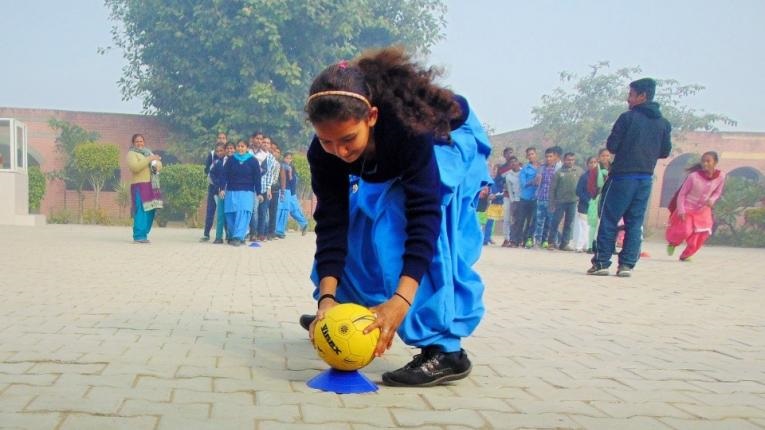
Sport breaks barriers between girls and boys in Haryana
As part of the Kadam Badhate Chalo (KBC) programme, Pro Sport Development (PSD), in partnership with the Society for Participatory Research in Asia (PRIA) and the Martha Farrell Foundation (MFF), conducted sports and gender camps with 143 youth, 74 girls and 69 boys, from the rural villages of Sonepat and Panipat in Haryana, notorious for their abysmal track record for crimes against women and girls.
PRIA and MFF’s sustained work in Haryana over the past couple of years, in particular with youth groups in rural areas, has found that their communities have faced gender based violence in various forms, such as dropouts of girl children from school, child marriages, unwanted/trapped pregnancies due to lack of awareness and honour killings. This comment by a 12-year old girl Anu from Mahra village in Sonepat summed up the state of affairs, “if we girls are not married off at a young age then boys make us pregnant and later we will be killed by our own families”.
This context made the sports and gender camp even more relevant to ensure that girls and boys recognise each other as equals, and work together towards seeking a gender just society. The camp utilised a variety of sports and physical activities such as Line Up, Beat the Ball, Dodgeball, Bulldog and Continuous Cricket, to break barriers between the two genders, encourage them to have a dialogue with each other and teach them the essential values of teamwork, leadership and communication to assist them in working together well within a group. Moreover, gender sensitisation activities such as a gender relay, situational analysis, workload analysis, reflections/discussions and skits, helped the girls and boys to increase acceptance towards each other, understand the various gender biases that exist and why, and analyse their community level issues through a gender lens.
The impact of the camp was instrumental in getting girls and boys feeling comfortable being in each other’s company as part of the youth group, providing girls with the confidence and self-esteem to freely convey their thoughts and opinions and sensitising the boys to their roles at a personal level in tackling gender based violence. Moreover, it enabled the youth groups to plan their future activities as part of the collective, which included tackling self-identified village level issues including encouraging girls to be sent to school, curbing child marriages and countering issues related to increasing substance abuse among the village youth.